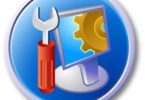While reading A Study in Scarlet, I came across an interesting list. Dr. Watson had taken the time to outline Sherlock Holmes’s strengths and weaknesses. Now, here’s the interesting thing about Holmes. He is the ideal detective. He’s dedicated his life to the pursuit of reason and solving crime. If we put it in terms of the 10,000 hours to master a skill rule, he’s invested a lot more than that into the subsets of what it takes to be a perfect detective. Let’s take a look at the list.

Best Skills of Startup Founders
- Knowledge of Literature: Nil.
- Knowledge of Philosophy: Nil.
- Knowledge of Astronomy: Nil.
- Knowledge of Politics: Feeble.
- Knowledge of Botany: Variable. Well up in belladonna, opium, and poisons generally. Knows nothing of practical gardening.
- Knowledge of Geology: Practical but limited. Tells at a glance different soils from each other. After walks has shown me splashes upon his trousers and told me by their color and consistence in what part of London he had received them.
- Knowledge of Chemistry: Profound.
- Knowledge of Anatomy: Accurate but unsystematic.
- Knowledge of Sensational Literature: Immense. He appears to know every detail of every horror perpetrated in the century.
- Plays the violin well.
- Is an expert singlestick player, boxer, and swordsman.
- Has a good practical knowledge of British law.
It’s pretty clear what he considers important to investigate and what he doesn’t. We can assume that he’s put in an immense amount of time into gaining knowledge of the things that help in investigations. Botany knowledge? Only the aspects which are necessary. Chemistry? Important all around, so he’s mastered it.
Now, why was this so interesting? It can be used to explain how he became the best detective in the world. While the stories are fiction, the idea of mastering the most important sub-skills in order to become the best at something is not. This kind of list of important skills can be applied to any activity- whether it is programming, law, or in our case, growing a small business.
So I asked myself: what skills would the ideal startup founder have? It isn’t necessary to become a master at all of them, but rather, have varying levels of proficiency depending on how essential that skill is. The list I came up with looked something like this:
- Knowledge of Business Strategy: Profound.
- Knowledge of business/startup history: Profound.
- Understanding of product design, branding, marketing, and related fields: Excellent, but applicable.
- Ability to program and technical knowledge: Variable. Ability to make prototypes, test concepts, and release initial versions. Being able to build full-scale solutions is not as crucial.
- Ability to motivate and lead: Excellent.
Let’s take a look at a few of these. First off, business strategy is probably the most important one. Many, many books have been written on how companies grew from a garage operation to a billion dollar industry. Books on general strategy, such as Good to Great (Jim Collins), have incredibly valuable approaches to considering what kind of strategy a business should take.
Knowledge of the history of companies, especially ones operating in the same industry as you intend to, comes in here too. Knowing what approaches worked for what companies is essential. Looking back at some of my earlier writings, we can analyze why companies such as Groupon or Dropbox were able to grow at the pace that they did- and then apply it to our own businesses.
So, to get started with this, one would probably head to the library. I recommend reading Good to Great and Hard Facts, Dangerous Half-Truths and Total Nonsense: Profiting From Evidence-Based Management (Jeffrey Pfeffer) first.
I’ve read both recently, and really enjoyed them. A lot of individual research is also required for finding out how the bigger startups of today became big. One book that I found interesting here was Hatching Twitter (Nick Bilton). Not only is it entertaining, but the chapter where Twitter finally gains popularity was extremely enlightening.
The team went to a startup event, hooked up a television to broadcast live tweets about the event, and gained huge popularity among the people there. It’s a simple, but genius stunt.
I wasn’t sure whether I wanted to include the ability to program or not. I know some extremely smart, non-technical people. But in the end I decided to throw it in here. This is, after all, a description of the ideal founder.
Most detectives don’t have an immense knowledge of chemistry, and yet Holmes does. Being able to develop prototypes of products in order to better explain your idea or to test whether there is a market for it or not is quite crucial when in the early stages of a startup.
Of course, one doesn’t have to be a Computer Science graduate to be able to do this. Instead, one should be able to build an initial version of whatever service or product they plan to offer. If it proves to attract an audience, it is time to look into hiring an actual developer.
I’d say that the languages one should know depend on whether they are planning on releasing an app or website. For an app, knowing Objective C would be the first step. For a website, the list is a bit more extensive. HTML, CSS, Javascript, PHP, and MySQL should suffice. Of course, one shouldn’t worry if they don’t possess these skills. There have been many non-technical founders- especially outside of the tech industry. Personally, I know that I still have a lot of work to do to get to a sufficient level in all of these languages.
Here, the best place to start would probably be Codeacademy. It’s important to get the basics down. After that, working on your own little projects seems to be the best way to go. I’ve been learning PHP for a while now, and have found that making little web apps and games is the more efficient way for me to go about it.
Once you know the fundamentals of uploading and reading MySQL databases with PHP, it’s possible to create rudimentary versions of almost anything. As you run into problems, you Google them. It’s an enjoyable activity, and this way, you feel like you’re accomplishing a lot every time you finish the latest little project you’re working on.
Some ideas for beginner projects would be a to-do list, a very basic social network with profiles and commenting, or maybe a restaurant menu generator.
Product design, marketing, and branding are quite similar to programming in that an ideal founder would know enough about them to apply them correctly and efficiently in the early stages of their startup. Marketing is probably the most important element here.
Fortunately, learning about the strategies that successful companies used will cover a lot of the newer, practical marketing methods. For branding and product design, as well as traditional marketing, one will probably be doing a lot of reading if they want to get onto the Holmes level.
As a last skill, we need to be able to lead and motivate people. You can improve your communication skills with customized training from sites like Thought-Leader. The importance of this cannot be overstated. It’s not necessary to be as charismatic as Steve Jobs to start a company (although it helps). In order to motivate people, you need to provide a strong vision.
Examples of these kinds of leaders would be Elon Musk, and to a lesser extent, Mark Zuckerberg. Neither is a master of public speaking or persuading people and yet, they are doing an incredible job at leading their respective companies. Their passion for what they are doing shows, and in return, inspires the people working with them.
That’s quite a lot of subjects to learn about. In the end, it would be extremely difficult to reach the ‘ideal’ levels in all of them. This was, however, a pretty interesting thought exercise. It certainly helps give a clearer picture on what one should focus on, even if the end goal is a bit unrealistic.







Leave a Comment
You must be logged in to post a comment.